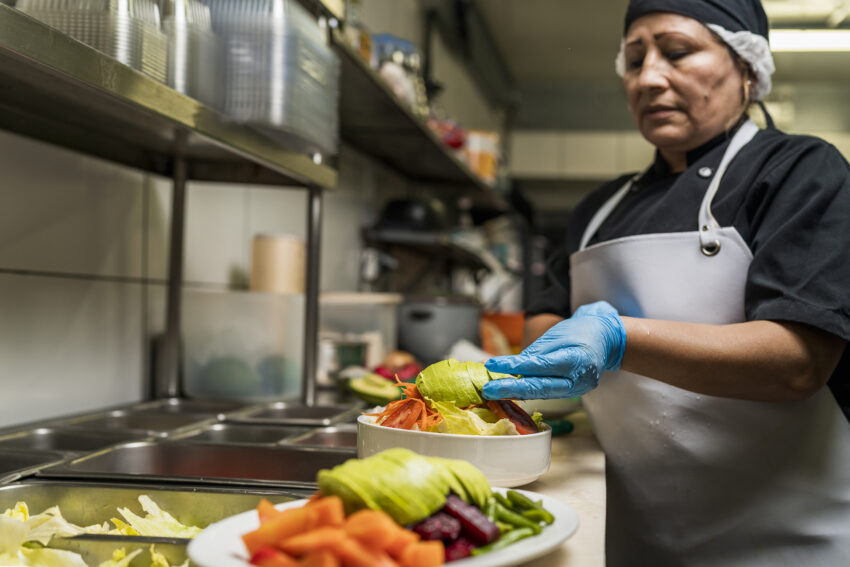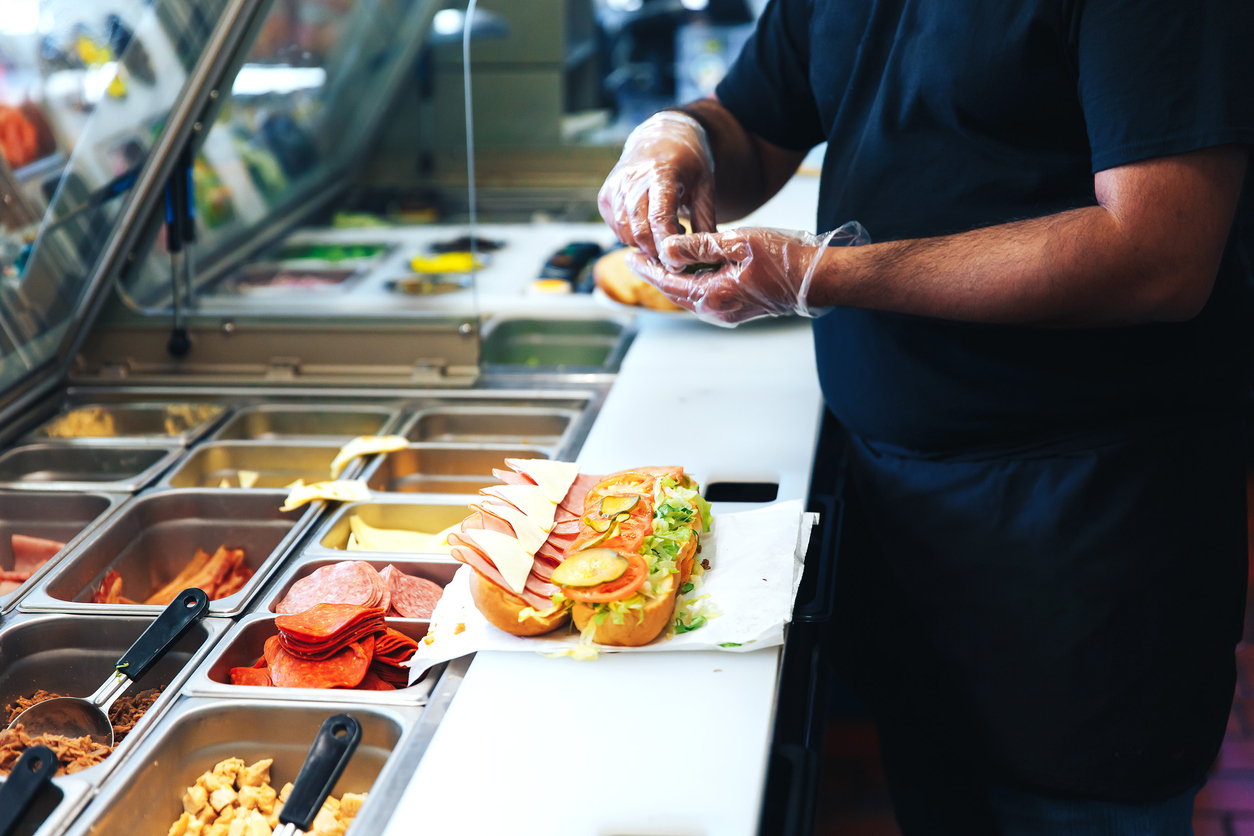
Share On Social!
We’ve all learned from an early age that it’s best to stay home when sick.
But for the 21% of American workers with no paid sick leave – many of which are Latino – staying home to rest may not feel like an option.
However, a new report by the US Centers for Disease Control & Prevention (CDC) highlights just how important it is to avoid working while sick – especially for food service workers.
Let’s explore the report and what it means for Latinos and all consumers.
Foodborne Illness Outbreaks Associated with Sick Workers
From 2017 to 2019, a total of 800 foodborne illness outbreaks were reported by state and local health departments. About 40% of these outbreaks were associated with ill or infectious food workers, according to the CDC report.
The most common pathogens attributed to these foodborne illness outbreaks were norovirus (47%) and Salmonella (18.6%).
Norovirus is a contagious virus that causes vomiting, stomach pain, and diarrhea.
Although one can prevent the spread of norovirus with good hand hygiene, anyone infected with norovirus should stay home when sick and avoid preparing food for others for two days after symptoms stop, according to CDC.
Salmonella are bacteria that can make people sick. Salmonella infection, called salmonellosis, causes stomach cramps, fever, and diarrhea. Symptoms usually begin six hours to six days after infection and last four to seven days, according to CDC.
Salmonellosis is a severe food safety risk because it is highly contagious and can be easily transmitted from an infected food worker to customers, according to the Minnesota Department of Health.
Why Are Sick People Working?
With the risks associated with ill workers handling food, why are they still showing up to work?
The answer most often lies in incomplete sick worker policies, according to the CDC report.

One frequently missing policy paid sick leave, which can have a major impact on preventing the spread of infectious diseases and foodborne illness outbreaks from sick workers.
The US is one of only three high-income countries in the world with no form of national paid sick leave, according to Change Lab Solutions. Only select states, cities, and counties have paid sick leave laws.
People with lower-paying jobs, such as food service workers, are less likely to have paid sick leave. Unfortunately, this includes many Latinos.
In fact, studies show that Latinos are significantly less likely than non-Latino workers to have paid sick leave, according to Change Lab Solutions. This means Latinos must compromise their paychecks anytime they see a doctor, even for preventative appointments, like cancer screenings.
Sometimes, Latinos simply can’t afford to lose hours at work, so they delay healthcare.
As a result, Latinos suffer from disproportionate rates of chronic diseases, like cancer, and infectious diseases, like COVID-19.
“When you are sick, you shouldn’t be forced to go to work. It’s bad for you, your co-workers, your employer, and your community,” according to a Better Balance.
“Latinos and all Americans should have access to paid sick leave, no matter their occupation, pay, or background,” added Dr. Amelie Ramirez, director of Salud America! and its home base, the Institute for Health Promotion Research at UT Health San Antonio. “Workers should have the time they need to be well and take care of family without fear of losing their job.”
How Can We Prevent Foodborne Illness Outbreaks?
Better paid sick leave policies, which includes adequate staffing to further encourage sick workers to stay home, could help prevent foodborne illness outbreaks.
Food establishments should also refine and enforce proper hand hygiene techniques.
Overall, there should be a greater focus on preventing foodborne illness outbreaks, rather than reacting to them.
“If companies value their employees’ health and their customers’ health, then they would not be responding reactively to these things. They would be taking proactive steps to prevent these things from happening,” Darin Detwiler, a Northeastern University food regulatory policy professor told NBC News.
Public health leaders can also play a significant role in advocating for paid sick leave policies. Read how!
You can help promote health equity among all workers, too.
Select your county and get a Health Equity Report Card by Salud America! at UT Health San Antonio.
In your report card, you will see maps, data, and gauges to compare health equity issues, including healthcare access, household income, and more.
Email your Health Equity Report Card to community leaders, share it on social media, and use it to make a case to address people’s health where help is needed most!
Get your Health Equity Report Card!
Explore More:
Healthy FoodBy The Numbers
1
Supermarket
for every Latino neighborhood, compared to 3 for every non-Latino neighborhood



